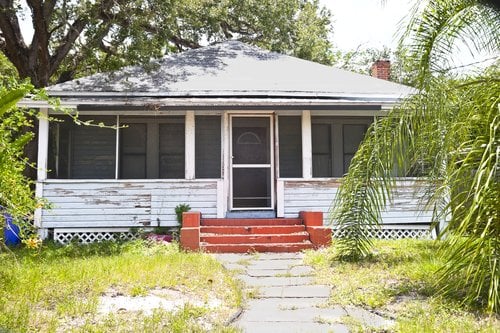What other factors are contributing to the Florida insurance crisis?
It must be noted that though the potential for hurricane damage is a dire hazard, it is not a major driving factor for the Florida insurance crisis. Here are some associated factors contributing to the crisis:
Refusal to insure older roofs

As scams hit more and more insurance companies, many are choosing to leave altogether. But, there are still some that are instead tightening their underwriting restrictions to reduce the chances of being scammed. As part of this, many insurers no longer want to cover homeowners with older roofs. This seems to be why Progressive, Southern Fidelity and Universal are continuing their operations in Florida, but have nonrenewed tens of thousands of policies.
To counter this, a recent law passed by state legislators aims at reducing roofing-related price hikes in Florida. The law is clear: insurance companies cannot deny coverage to a home solely based on the roof's age, as long as it is less than 15 years old. Similarly, insurers cannot refuse to issue a policy if the roof has at least five years of life remaining. This protects homeowners from being discriminated against based on the age of their roof. Despite the law, insurance prices aren't anticipated to decrease for another 12 to 18 months, and householders can anticipate further cost increases and problems with obtaining coverage.
Sluggish claims handling processes
In the aftermath of 2018's Hurricane Michael, thousands of Floridians struggled with insurance companies to pay their claims. Some claims were denied outright, while others were delayed for months. Addressing fraudulent scams doubly pressured insurance companies, with many unable to adhere to the state law requiring a 90-day timeframe within which the claims had to be paid or denied.
Currently, many trial lawyers are working to reduce the timeline of handling claims to 30 days, and The Office of Insurance Regulation is considering adopting a set of industry-wide "best practices" for handling claims. This would standardize the way that insurers handle claims and could help to improve the overall quality of customer service.
Affiliated insurance companies charging high fees
The state of Florida, like many others, permits insurance companies to be charged for services by their parent and sister companies. An insurer's parent company can charge the insurer for commissions or can charge fees for handling claims. For instance, if an insurer's parent company charges a commission, the insurer may have to pay a percentage of premiums to the parent company.
The murky relationships between insurers and their affiliates have been a source of frustration for regulators. For years, questions have been raised about whether the fees charged by affiliates are for legitimate services or if they are just a way to siphon money from the insurer.
As insurance companies continue to fail in Florida, state officials are trying to pinpoint the root of the problem. After reviewing five failure reports, financial auditors find a common issue: affiliated companies are charging high, unnecessary fees draining the host companies dry. This is causing a significant financial burden and ultimately leading to the downfall of these insurers.





